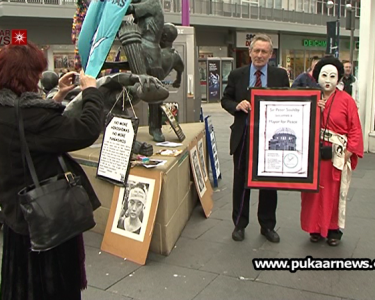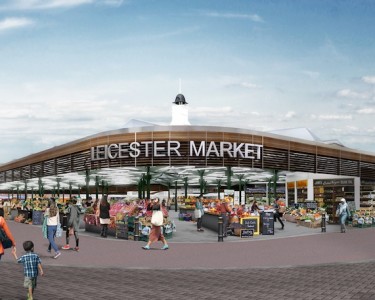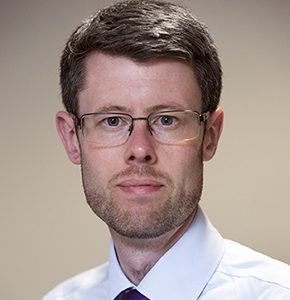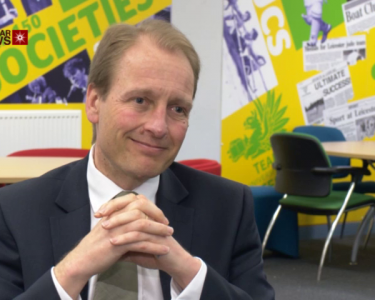 As Sir Peter Soulsby approaches his first year in office Pukaar News had the opportunity to speak with the Mayor of Leicester and ask him about what has been his toughest challenge since taking office and his plans for the future of the city.
As Sir Peter Soulsby approaches his first year in office Pukaar News had the opportunity to speak with the Mayor of Leicester and ask him about what has been his toughest challenge since taking office and his plans for the future of the city.
You have announced that you would like to see an entire restructuring of the city centre to make it more user-friendly for the general public. Although there will be financial help from the commercial sector, such as Sainbury’s agreeing to pay for the demolition of Belgrave flyover, where will the money come from to cover the cost of such a huge project given the financial crisis and economic uncertainty?
If you look at Leicester City Centre over the last few years there has been a remarkable transformation. Highcross Shopping Centre is very obviously a flagship of this change. The area around the High Street and the Clock Tower has also been dramatically improved. However, there are quite a number of areas of the city centre that are looking pretty tired and are in need of investment. People need to be encouraged to go beyond the Highcross and see the rest of the City Centre, into the lanes and city’s market. We can’t solely rely on one shopping area we need to continue to invest in the retail heart of the city. While obviously times are hard the council has to be prepared to put more of its investment in and encourage others to help them. There is also a job to be done to repair some of the links that were cut when the council built new roads, flyovers and underpasses in the 1960 and 1970s. These developments negatively impacted on the appearance and the connectivity of the city. For example the underpass which cut the Roman and Medieval part of the city off from the retail area. So now the castle and wonderful area around it are on one side of the road, The Guildhall is on the other side and on a separate side is the Roman Jewry Wall. Re-linking these historic landmarks is a major challenge. The other area that needs restructuring is Belgrave Road roundabout which causes a major block going out of town. There is an opportunity for us to work with Sainsbury’s as the potential redevelopers because they are looking to relocate but also make the most of their current site at the bottom of Belgrave Road. So the redevelopment programme is partly about the council continuing its investment but also looking for opportunities for us to work with outside developers.
One of your commitments is to have a greener more environmentally friendly Leicester what plans are there to restore Leicester’s reputation as the UK’s first Environment City?
Leicester has a longstanding reputation on environmental issues in general that was recognised with being declared Environment City. That title wasn’t seen as much as an accolade than as a challenge. Although my predecessors have taken forward many worthwhile initiatives I think that the profile of Environment City has been lost to some extent and it is of less obvious that Leicester is a leading city in this area. I am determined during my period of office that we will genuinely be seen as a low carbon city. I’m working very closely with many of my colleagues, particularly the Deputy Mayor Rory Palmer, who is leading on a lot of this work on how we best engage with people from outside of the council to advise and work with us on environmental issues. We need to focus on a whole range of issues from the major transportation changes and getting people out of their cars. We also need to encourage people to use less energy in their homes and properly insulate their lofts. We intend to pull all of these ideas together into an action plan so that people will know what we are doing why we are doing it and how they can measure our success.
What improvement will you make towards the city’s public transport system?
We need to have more control over the provision of public transport in the city and that’s why I’ve been calling for the Mayor of Leicester to have the same sort of powers that the Mayor of London has over the capital. It’s also about us working with the bus companies and taking initiatives ourselves to provide better facilities for buses and bus users in the city. Part of what we are doing on Humberstone Gate will improve things in that area but I think there is still a major challenge in dealing with the serious congestion in Charles Street caused by the conflict of buses and private cars. In the near future we will be seeing cameras put up to prevent cars from using it.
Leicester is well known as one of the most multicultural cities in the United Kingdom. How do you feel about the way the people of Leicester have reacted to the protests from the far-right in the form of the English Defence League?
The fact is you can’t prevent people from coming to a city centre on a Saturday afternoon and holding a static demonstration the law permits them to do that. In October 2010 the static demonstration effectively closed down the City Centre for 24 hours causing an absolutely chaotic situation. Although, there is a part of me that wants to ban people with appalling and objectionable views from coming to the city centre the reality is you can’t do that. Instead we tried to minimize the amount of disruption they cause. We met with communities, individuals and businesses across the City Centre, the message from all of them was clear” Do all you can to prevent a re-run of 2010. If they have to come to our city get them in and out of it as quickly as possible.” I was enormously proud of the way Leicester responded to it, people didn’t overreact they showed their objection to it and then got on very quickly with business as usual. The judgement we took to allow the march did prove to be right because it did significantly reduce any disruption.

What are your top priorities for the city as we move further into 2012?
The economy is right at the top of the agenda but so too is working to improve the quality of the education in the city. My colleague Vi Dempster the Assistant Mayor has got a tremendous record before I was elected on improving the outcomes for our young people at school. Vi is continuing to drive these improvements forward in a way that I am very supportive of. Beyond the economy and education, the quality of the care that we provide for the most vulnerable people in the community both adults and children is a priority. We must also continue to support the elderly community in our city. Above all of this I’ve got a determination to raise awareness of how much we have got to be proud of, I think we often don’t recognise just how much Leicester is leading city and how much we do in Leicester that is innovative and exciting. I’m determined that we should proud of that and be confident about our future.
Even though you have a team of deputies working alongside you in your role as city mayor since you came to office there have been a number of issues related to you personally and to your job. For example, the debate about how much you should be paid and the situation with the former Head of the City Council Shelia Lock. Do these types if issues distract you from carrying out your role as Mayor or are they an inevitable part of the job?
These issues are an essential part of the job because the great advantage of having an elected mayor is that the person is elected by the people of the city and accountable to the people. Part of the accountability is to have everything you do thoroughly scrutinized. That’s a very healthy thing, it’s not always comfortable but you don’t do a job like this in order to be comfortable. Compared to the role of council leader, which I’ve done for 17 years, the accountability of Mayor is so much greater. The council leader is selected by their group in a private meeting and is only ever really answers to the council and their political group. Whereas the Mayor is chosen by all of their party members, that happened in my case but an independent could have well been elected, nonetheless what is most important that are elected by the people and ultimately they are accountable to the people. Recently I’ve been talking a lot to people in other cities where they are moving towards having elected mayors although many of them have the same sort concerns about the system that were been expressed in Leicester 12 months ago I think they can also see that the system is more democratic.
How far away do you think your politics are from those of the Parliamentary Labour Party when it comes to issues of getting people out of the poverty trap and forging a more equal society?
There’s much of what the last government did that I’m very proud of I was particularly pleased with its concentration on combating poverty in general and child poverty in particular. I was very pleased with the work that was done to give children a decent start in life with the Sure start Centres. I am delighted that I and my colleagues have been able to protect Leicester’s Sure Start Centres. Despite all the difficult budget cuts I’m determined we aren’t going to close any of those and that’s manifesto promise. Having said that, of course there are always aspects of any government’s policy or party that an individual won’t entirely sign up to but looking a Labour’s record in government there’s lots I very pleased to be able to build on.
At the beginning of the year council tenants were hit with a 7.2 percent rise in their rent, which was approved you and your team, doesn’t a decision like this affect some of the poorest members of society during a time when unemployment is rising and people are worried about the cost of living?
It’s very painful rise but is exactly the figure the government is imposing. While we did look at the options of trying to cushion the rise but we concluded we would have to cut the quality of services by way of maintenance and cut back on investment in housing including investment in energy efficiency. It’s a very difficult balance and I know how difficult it is for many tenants. The responsibility for the increase lies directly with the government because the figure is exactly the one wants us to make as they force us to put up rents.
What will be the biggest challenge for you and your mayoral team going into 2012?
The biggest challenge we face going into 2012 is what is happening to Leicester’s economy as a result of what is happening at a national level. We have to re-double our efforts to attract investment into the city, to retain and create jobs. All of this happening at time when the government is taking away our own finances and our ability to do things directly. In the current year we have to make £30 billion worth of cuts, that’s a lot of jobs and in the next few years we have to cut another £40 billion worth that’s going to mean more jobs.






